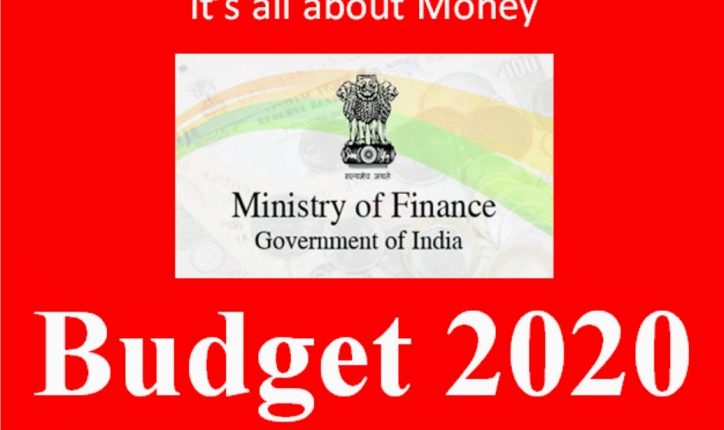Budget 2020: Now expect more FDI, tech transfer to India as Govt abolishes DDT
Japan Chamber of Commerce and Industry in India (JCCII), Confederation of Indian Industry (CII) had been raising the issue of DDT for a long.
NEW DELHI: The announcement of the abolition of dividend distribution tax (DDT) in the Union Budget 2020 has brought cheers for the dividend-rich multinational companies especially the ones that were planning to expand and diversify their operations in India.
Some of the affected countries like Japan whose companies were paying DDT at the rate of 20.56 percent despite Double Taxation Avoidance Agreement (DTAA) provisioning a maximum of 10% tax on dividends through withholding tax, will greatly benefit from April 1 when the new DDT regime gets effective.
The issue of DDT was raised by Asian Community News (ACN) Network in its pre-budget coverage Right time for India to abolish Dividend Distribution Tax (DDT), attract FDI: JCCII on January 24.
However, the Indian government will get a hit of Rs. 25,000 crores in terms of DDT.
Japan Chamber of Commerce and Industry in India (JCCII), and other trade bodies have been raising the issue for a long with Ministries of Finance and Commerce & Industry.
JCCII acting member N. Takahashi hoped that the Double Taxation Avoidance Agreement (DTAA) – also known as India Japan Tax Treaty 2006 would now be implemented in its true spirit and words.
“Once the dividend is in hand of the receiver, DTAA India Japan clause 10 (Tax on Dividend max 10%) will work and will be implemented. Exemption of dividend income under section 10 (34) has now been removed. It means if any Indian investor receives dividend income after April 1, 2020, it will be treated as income in his/her/its hand,” said Takahashi.
He said DDT abolitions meant that if any company declared and distributed dividends after April 1, 2020, then it would not be taxable in the hand of the company but for the period between April 1, 2003, and March 31, 2020, it was supposed to pay DDT.
According to the taxation experts, the corporates especially MNCs that were paying DDT through their nose at the hefty rate of 20.56 percent, will now be able to claim credit for DDT paid their Indian arms.
“Abolition of DDT is a welcome move from the perspective that it significantly reduces the burden on corporates from paying dividend tax, increasing the return on investment for foreign investors and with the onset of technology which makes very easy to track recipient of dividend income it was imperative and much needed to shift the burden of dividend tax from payer to recipient,” said Atul Puri, Partner, ShineWing India, a global network of independent accounting and consulting firms.
Now, post removal of DDT, the foreign investor can pay taxes on such income in India and claim benefit of such taxes paid in accordance with the Tax Treaty in their country of residence said Puri adding that this will help foreign investors in increasing their return on investment and elimination of double taxation of the same income.
“The decision aims to put a leash on false and fabricated claims of expenses incurred in relation to earning such income, the budget has further introduced an upper cap on the maximum expenditure to be claimed in respect of such income, which is 20% of dividend earned,” added Atul Puri of ShineWing India.
“Make in India” may get the required push:
Jagdish Kukreja, Founder, EDP Services and an authority on Indo-Asian trade affairs said that the abolition of DDT would not only boost inflow of foreign investment into India but also induce technology transfer, which would finally push India’s ambitious program close to Prime Minister Narendra Modi’s heart – “Make in India”.
“I foresee a real benefit Indian industry can enjoy after the abolition of DDT is that the foreign capital would also bring along advance technology and knowhow from Asian countries like Japan, Korea, and China. However, since the decision of technology transfer remains discretionary with the companies investing in India, the government should come out with a regulation-making it mandatory, partially though so that India can benefit at the larger scale,” added Kukreja.
Chandrajit Banerjee, Director General, CII, said, “The budget has sent positive signals on the support from the ‘invisible hand’ to the businesses and investors.”
Welcoming the proposal to remove the Dividend Distribution Tax for corporates and revert to the classical system of taxing dividends in the hands of shareholders, Banerjee said that the move will reduce the cost of equity capital in the country. The abolition of DDT has been a long-standing recommendation from CII.
Cost of doing business to reduce
According to Mohit Malik, the leading taxation expert & corporate lawyer and founder of GST Academy, the abolition of DDT would reduce the cost of doing business for high dividend-paying companies, the move to tax shareholders for dividends would impact promoter shareholders and some holding companies.
“Now corporates will either pay more dividends to investors or will use these funds to diversify their businesses. Also, it will remove the burden of compliance on dividend-paying companies,” added advocate Malik
AEPC Chairman Dr. A Sakthivel complimented the FM on steps for promoting investment and innovation in the textile and apparel sector.
“Taxpayer Charter to be enshrined in the Statute will bring fairness and efficiency in tax administration which is laudable. The DDT removal will make India a more attractive investment destination. The personal Income tax benefits will boost purchase power and boost consumption. Demand growth will increase the GST tax collection.”
Dr. A Sakthivel said, “We would also to thank the Finance Minister for the proposed review of the Rules of Origin criteria for FTA countries as we can see a huge surge in import of garment from Bangladesh. However, a complementary step in this direction would be expediting the FTAs with the EU, Australia, Canada & initiating FTA with the UK.”



